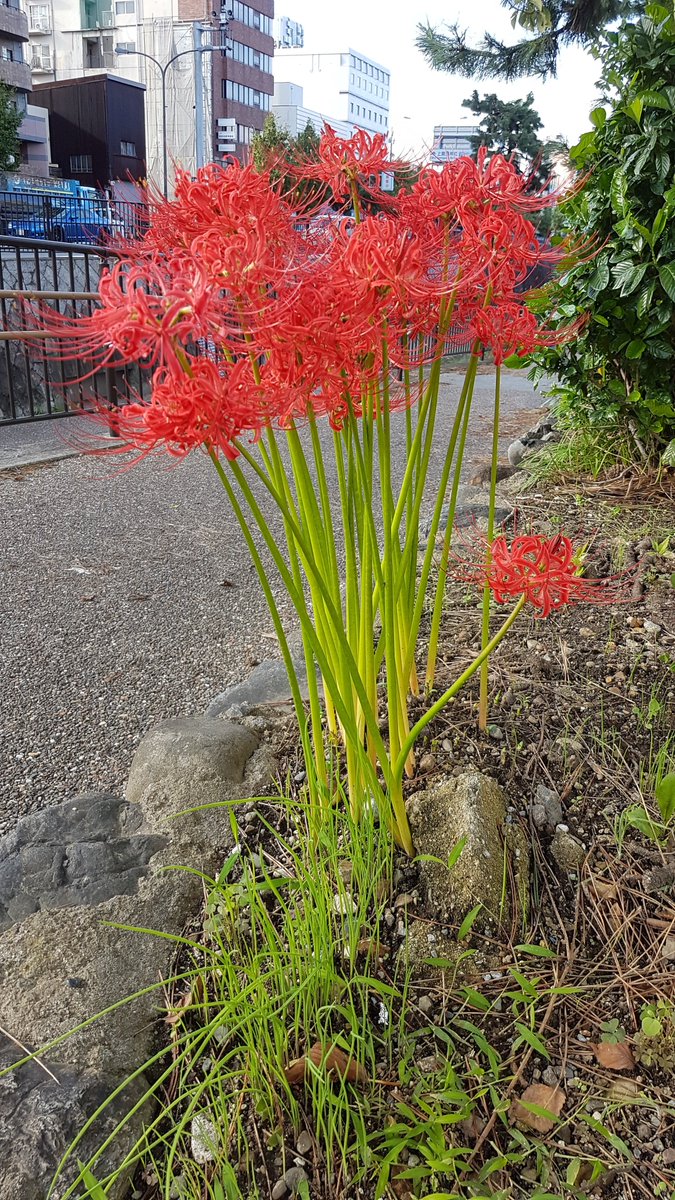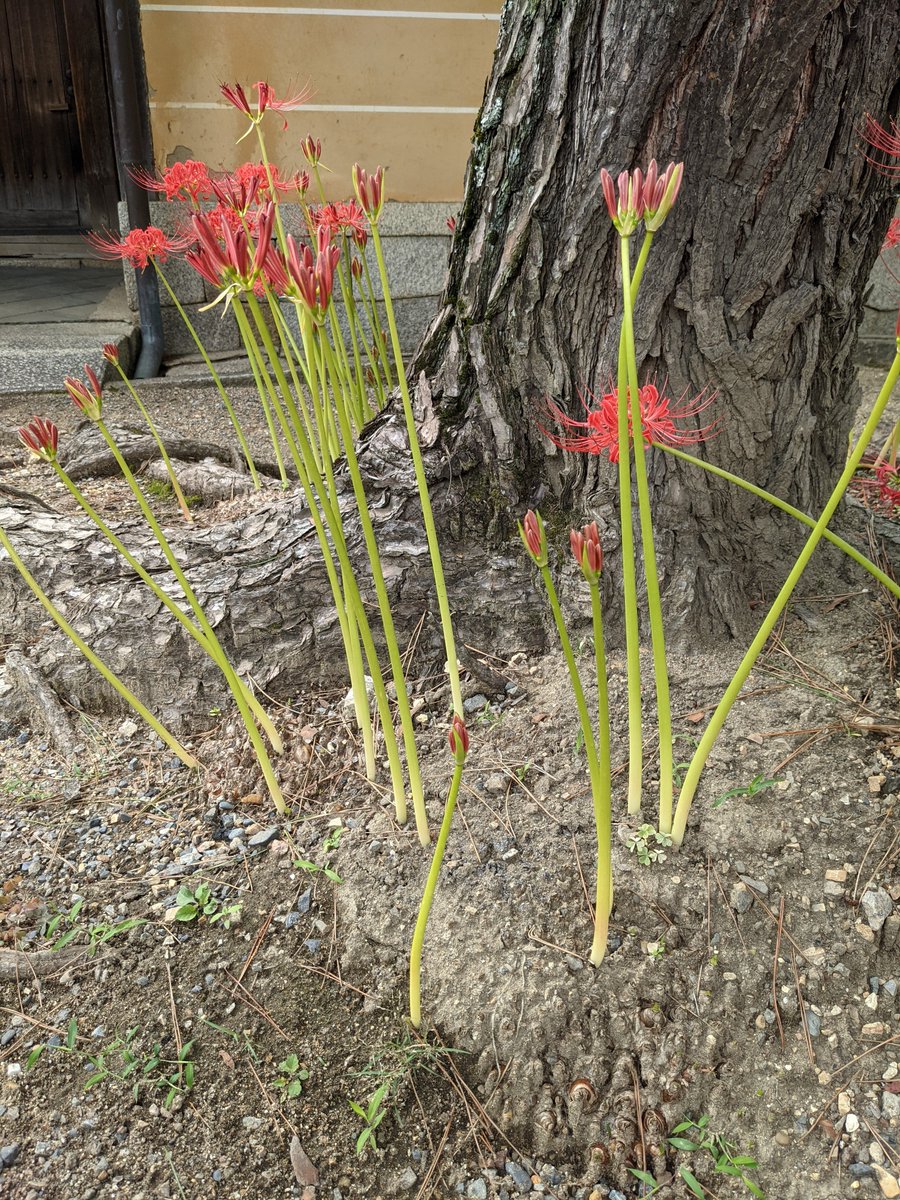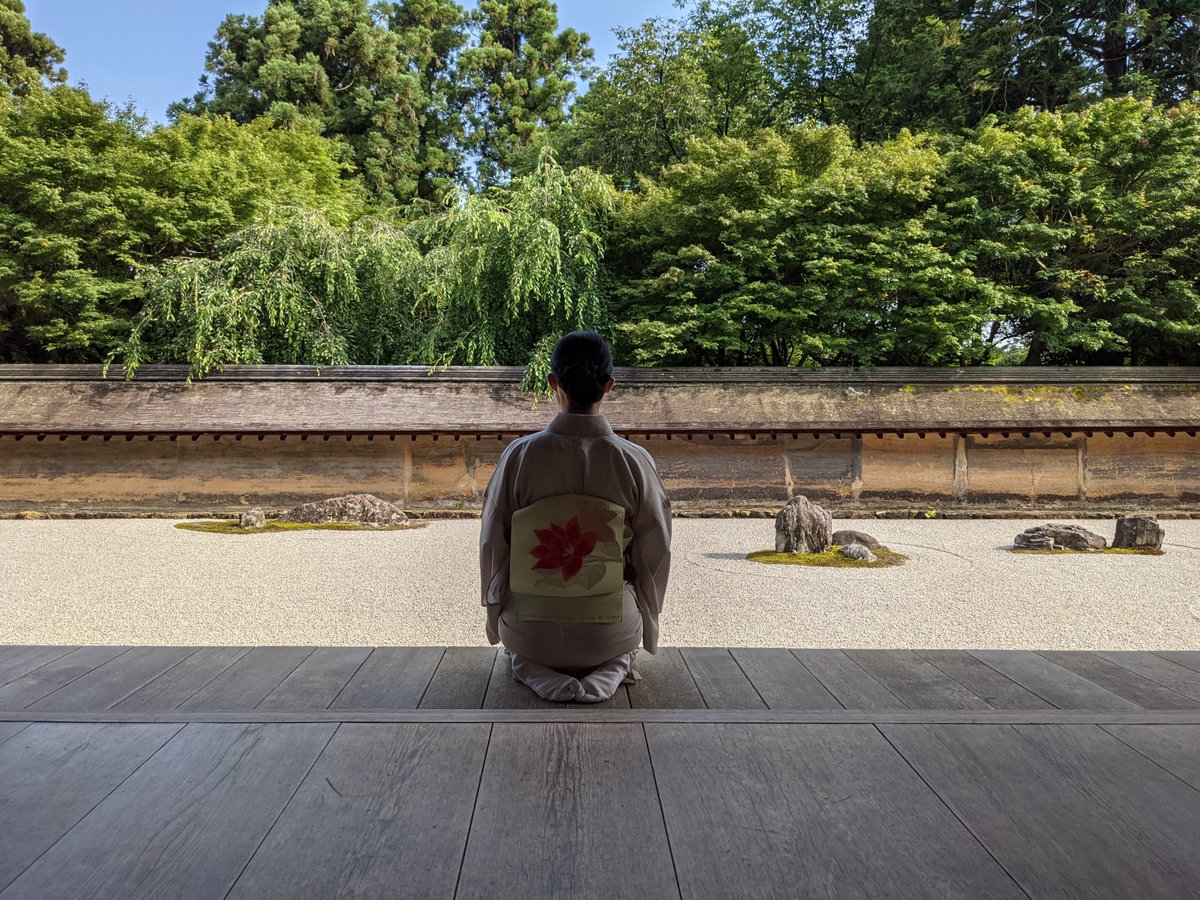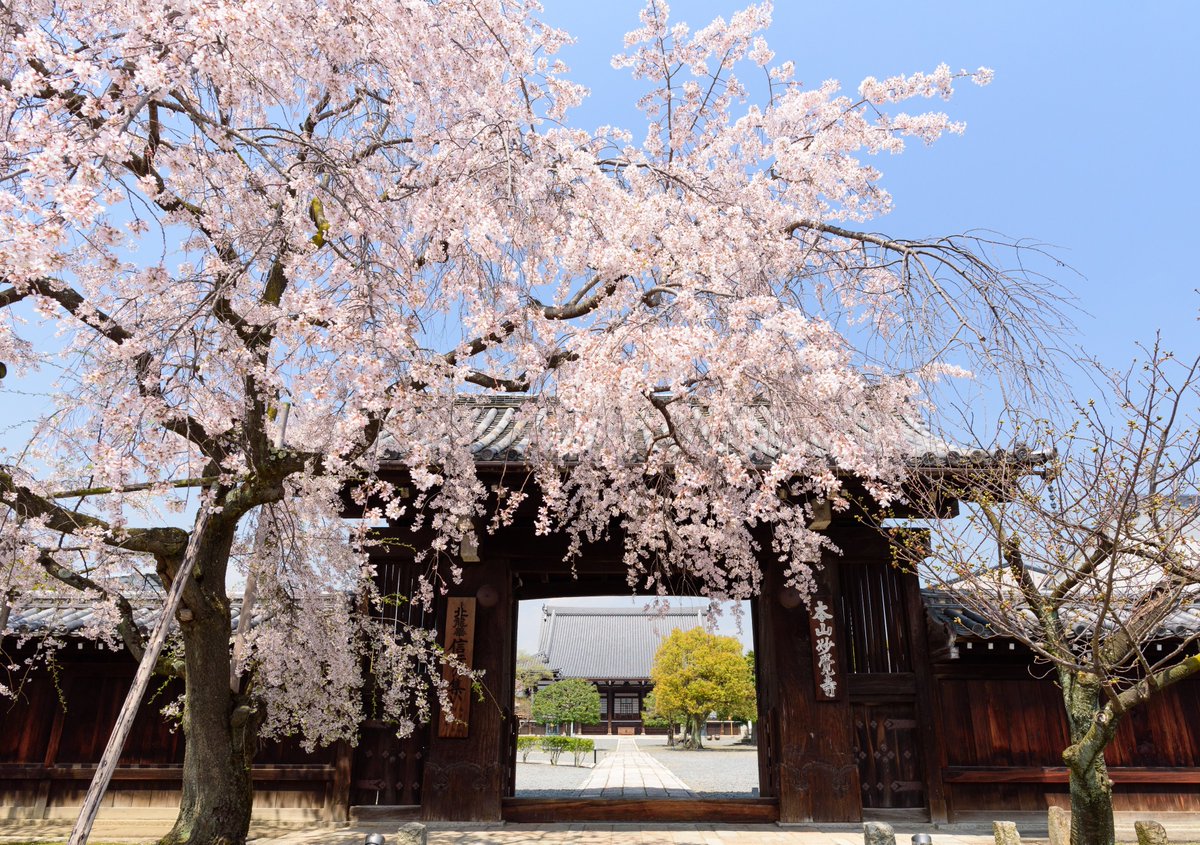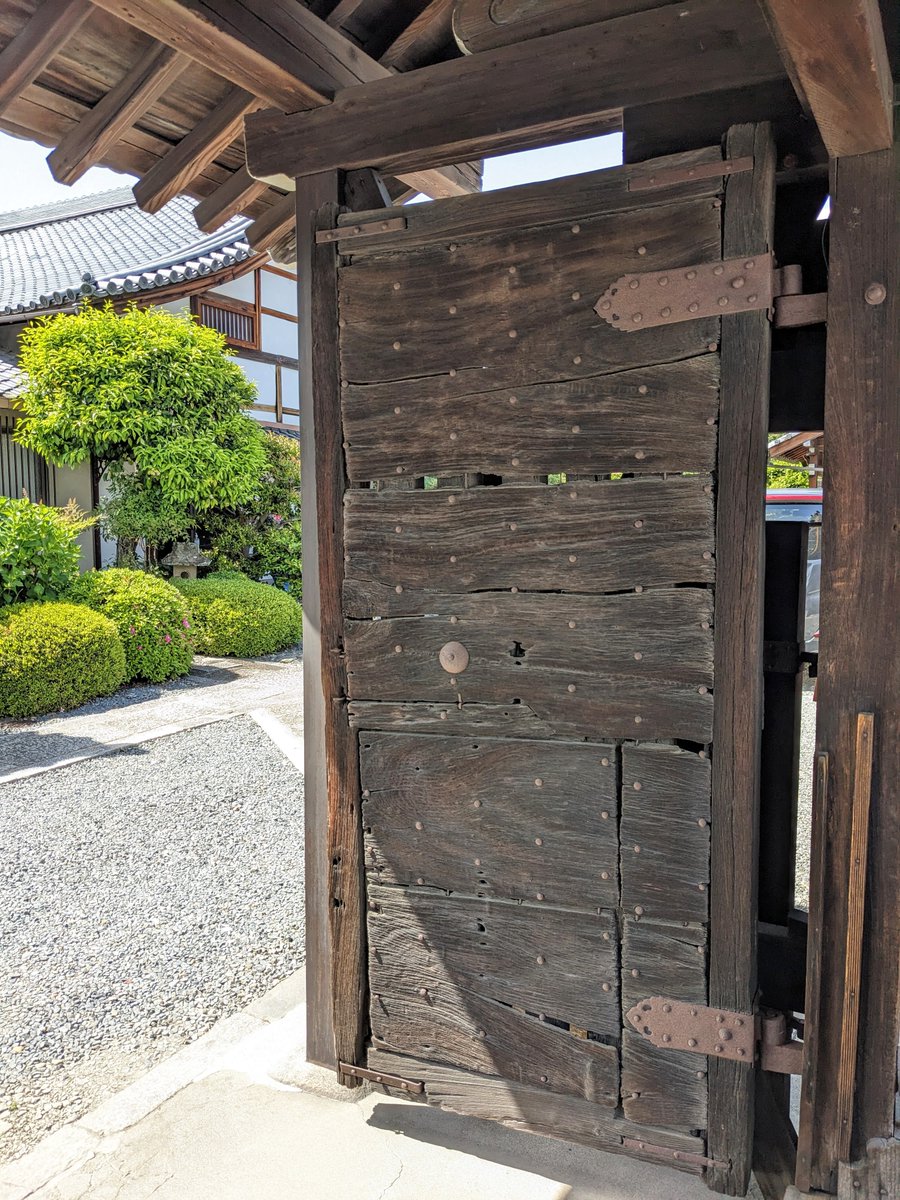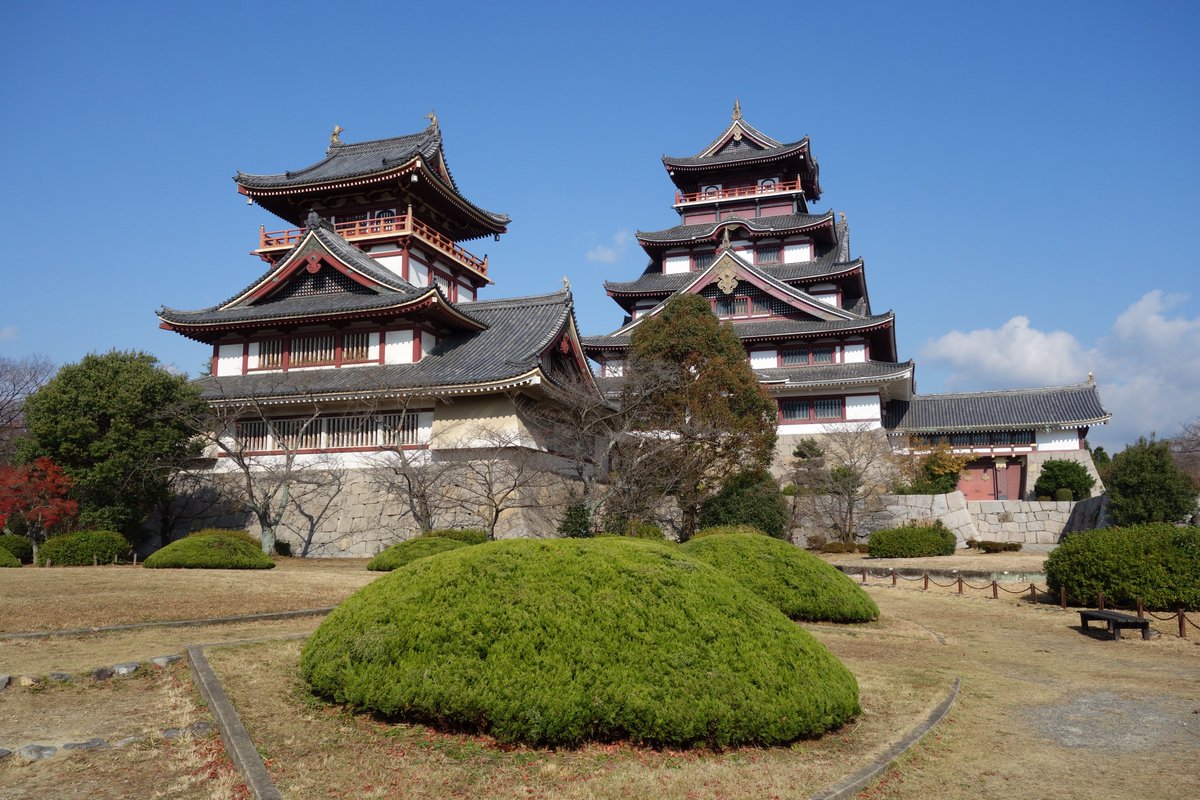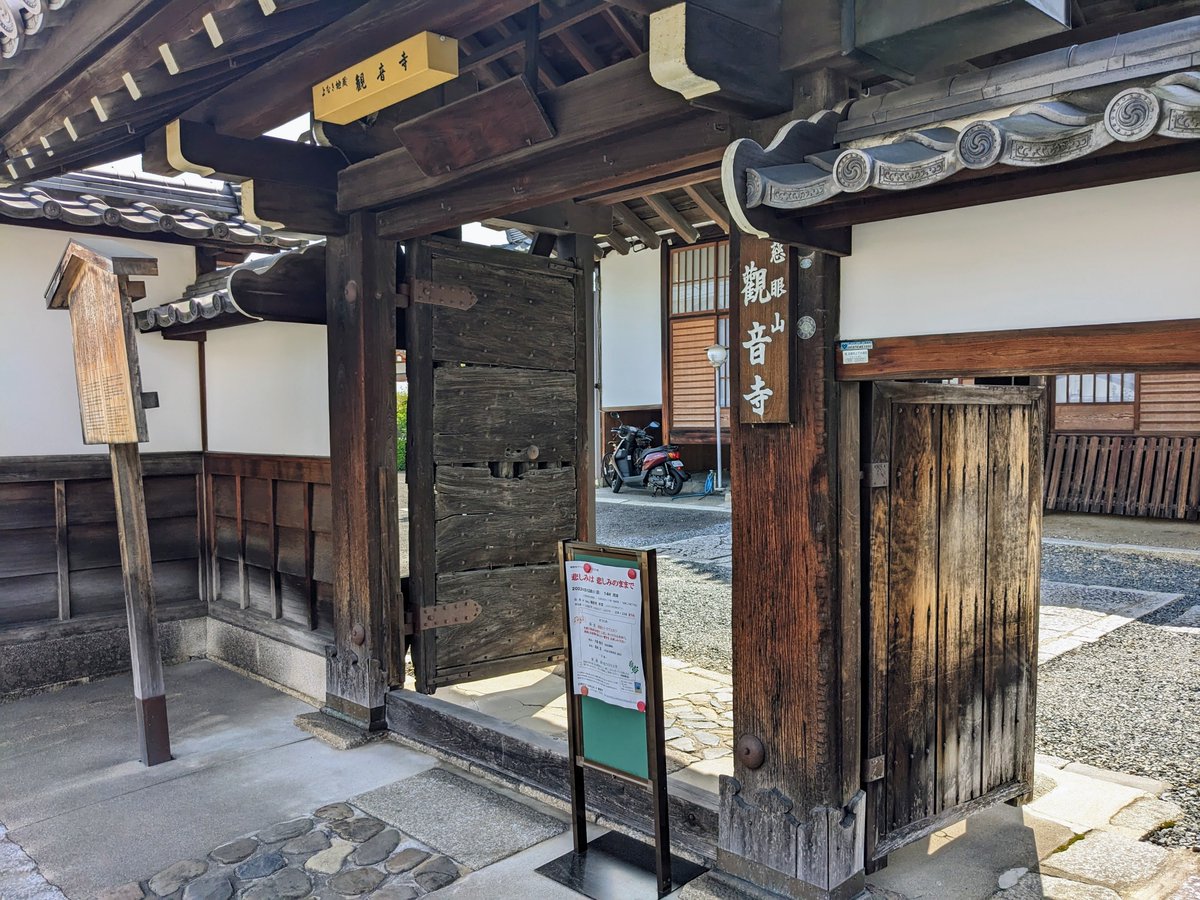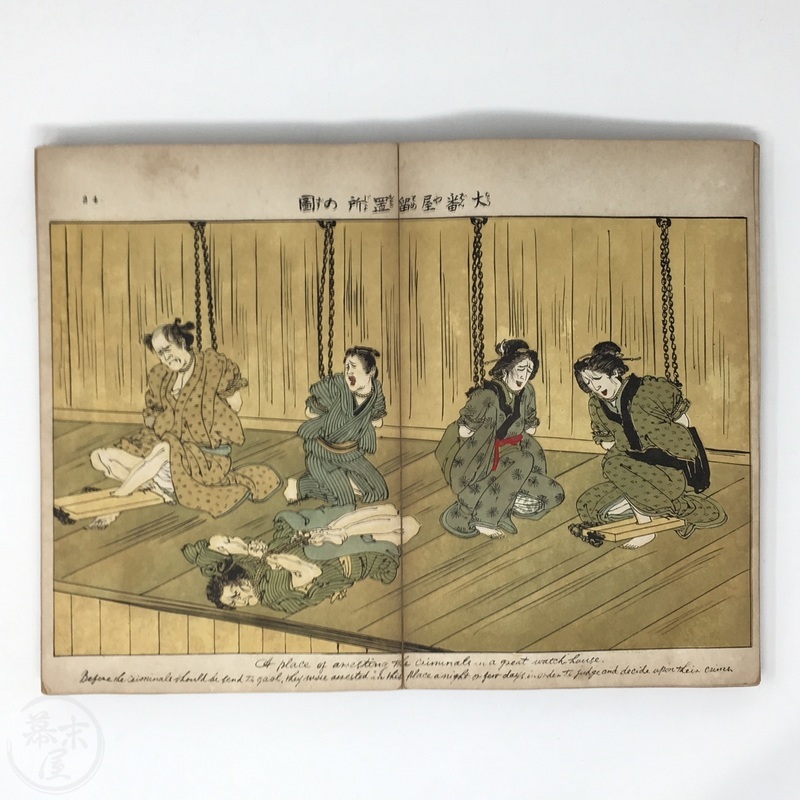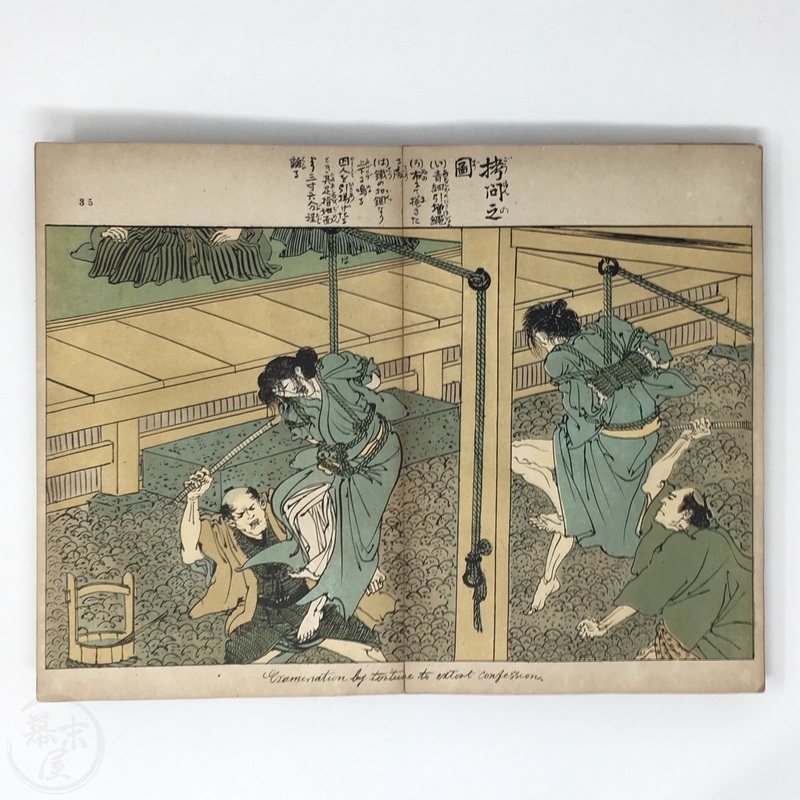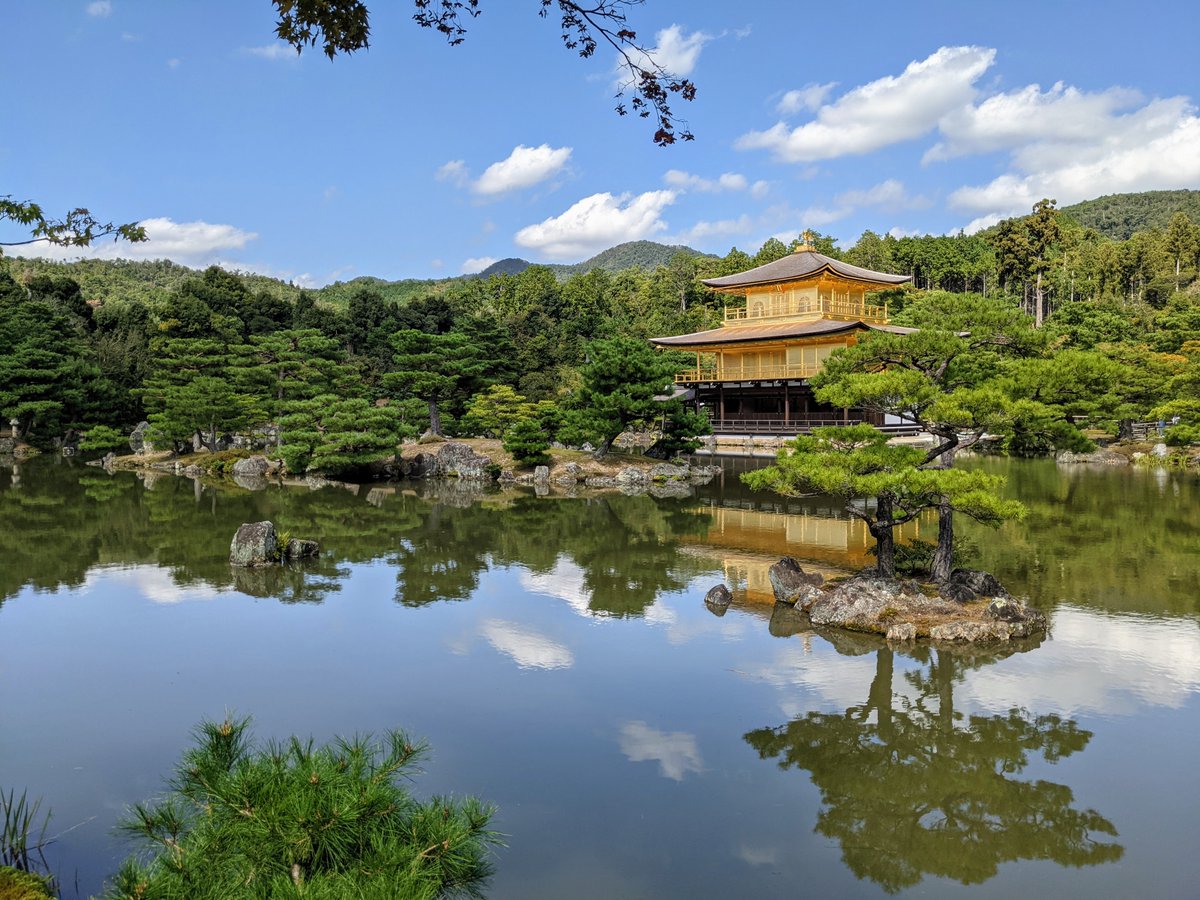🌬️HUT OF THE FALLEN PERSIMMONS😮
A straw raincoat hangs beside the door at Rakushisha (落柿舎), indicating that the host is home.
The small cottage was home to Mukai Kyorai (向井去来), chief disciple of Matsuo Bashō. It was here Bashō composed 'Saga Nikki' (嵯峨日記) in 1691.



A straw raincoat hangs beside the door at Rakushisha (落柿舎), indicating that the host is home.
The small cottage was home to Mukai Kyorai (向井去来), chief disciple of Matsuo Bashō. It was here Bashō composed 'Saga Nikki' (嵯峨日記) in 1691.




Mukai named his hermitage 'Hut of the Fallen Persimmons' (落柿舎 'Rakushisha') in the autumn of 1689.
40 persimmon trees stood in the cottage grounds, & he sold the fruit in advance to a merchant. Shortly before harvesting a storm struck, & Mukai awoke to find the trees stripped.



40 persimmon trees stood in the cottage grounds, & he sold the fruit in advance to a merchant. Shortly before harvesting a storm struck, & Mukai awoke to find the trees stripped.




master of persimmons
so close to the tree tops
Stormy Mountain
柿主や梢はちかきあらし山
Mukai Kyorai (向井去来) wrote this haiku to commemorate the fallen persimmons event, something he considered a humorous lesson in the pitfalls of pursuing worldly gain.
#Kyoto #Japan #京都



so close to the tree tops
Stormy Mountain
柿主や梢はちかきあらし山
Mukai Kyorai (向井去来) wrote this haiku to commemorate the fallen persimmons event, something he considered a humorous lesson in the pitfalls of pursuing worldly gain.
#Kyoto #Japan #京都




Mukai Kyorai purchased (what would become) Rakushisha (落柿舎) in 1686. The cottage's early history is unclear, though originally it stood closer to the Togetsukyō (渡月橋).
In 1688 Mukai purchased another building to act as a meeting place for poets.
Bashō would visit 4 times.
In 1688 Mukai purchased another building to act as a meeting place for poets.
Bashō would visit 4 times.
Despite its fame, Rakushisha fell to ruin after Mukai's death. In 1770 Inoue Jūkō (井上重厚 1738-1804) moved to Saga to revive the hut, now on land owned by Kōgen-ji (弘源寺), a sub-temple of Tenryū-ji (天龍寺). He erected a tomb for Mukai.
Photo thanks- blgid1974.blog.fc2.com



Photo thanks- blgid1974.blog.fc2.com




For a time the hut became a retreat for Kōgen-ji's elderly monks, renamed Sute-an (捨庵).
In 1868 volunteers restored the hermitage, returning the name to Rakushisha. Finally, in 1895, Kōgen-ji was moved to Tenryū-ji's grounds & the hermitage moved to its current position.
#Kyoto
In 1868 volunteers restored the hermitage, returning the name to Rakushisha. Finally, in 1895, Kōgen-ji was moved to Tenryū-ji's grounds & the hermitage moved to its current position.
#Kyoto
The rules to ensure harmony at Rakushisha (落柿舎制札), by Mukai Kyorai.
💤do not disturb other sleepers (no snoring)
🥕vegetarian diet only
🚬be considerate when smoking
🔥be careful with naked flames (and the ash from smoking)
❤️look after one another
🥳enjoy yourself
#Japan
💤do not disturb other sleepers (no snoring)
🥕vegetarian diet only
🚬be considerate when smoking
🔥be careful with naked flames (and the ash from smoking)
❤️look after one another
🥳enjoy yourself
#Japan

summer rain
on the wall traces
of torn poem cards
五月雨や 色紙へぎたる 壁の跡
Matsuo Bashō (松尾芭蕉 1644-94) ends 'Saga Nikki' (嵯峨日記) with this poem, written as he prepared to leave Rakushisha. Like the poem cards peeling from the walls, Bashō must now peel himself away.



on the wall traces
of torn poem cards
五月雨や 色紙へぎたる 壁の跡
Matsuo Bashō (松尾芭蕉 1644-94) ends 'Saga Nikki' (嵯峨日記) with this poem, written as he prepared to leave Rakushisha. Like the poem cards peeling from the walls, Bashō must now peel himself away.




One of the loveliest features of the hut is a small box, 'tōku-bako' (投句箱), for posting your poems...keeping the original purpose of the thatched cottage alive.
Photo thanks-blog.goo.ne.jp/teinengoseikat…
#Kyoto #京都 #嵐山 #嵯峨野 #Arashiyama #Sagano #松尾芭蕉 #Japan #落柿舎
Photo thanks-blog.goo.ne.jp/teinengoseikat…
#Kyoto #京都 #嵐山 #嵯峨野 #Arashiyama #Sagano #松尾芭蕉 #Japan #落柿舎

• • •
Missing some Tweet in this thread? You can try to
force a refresh



